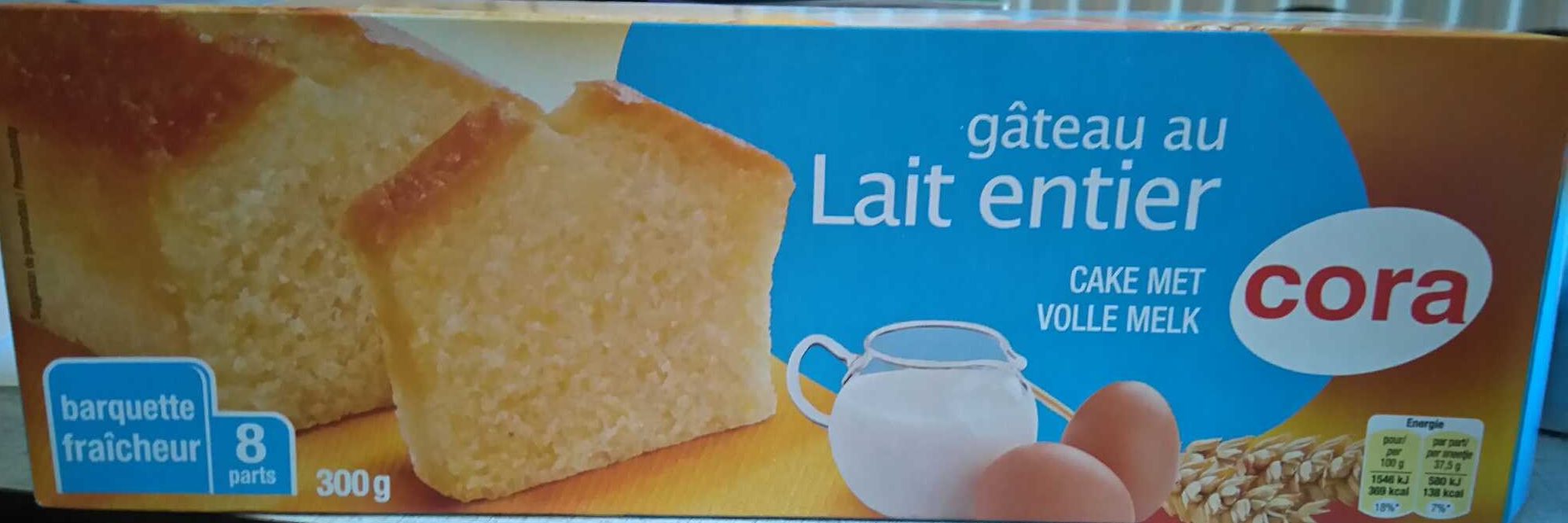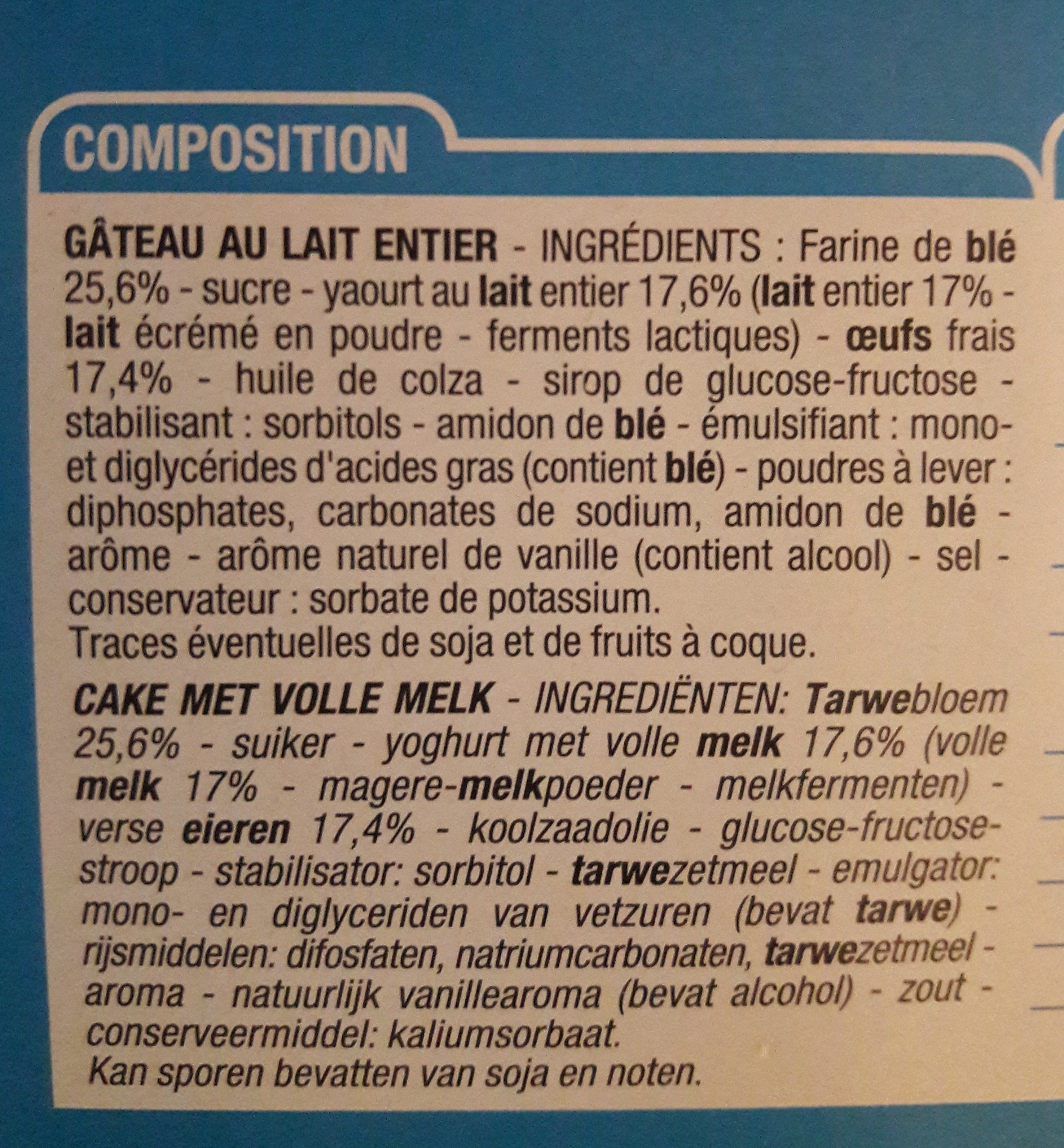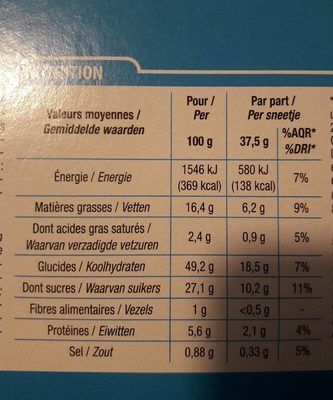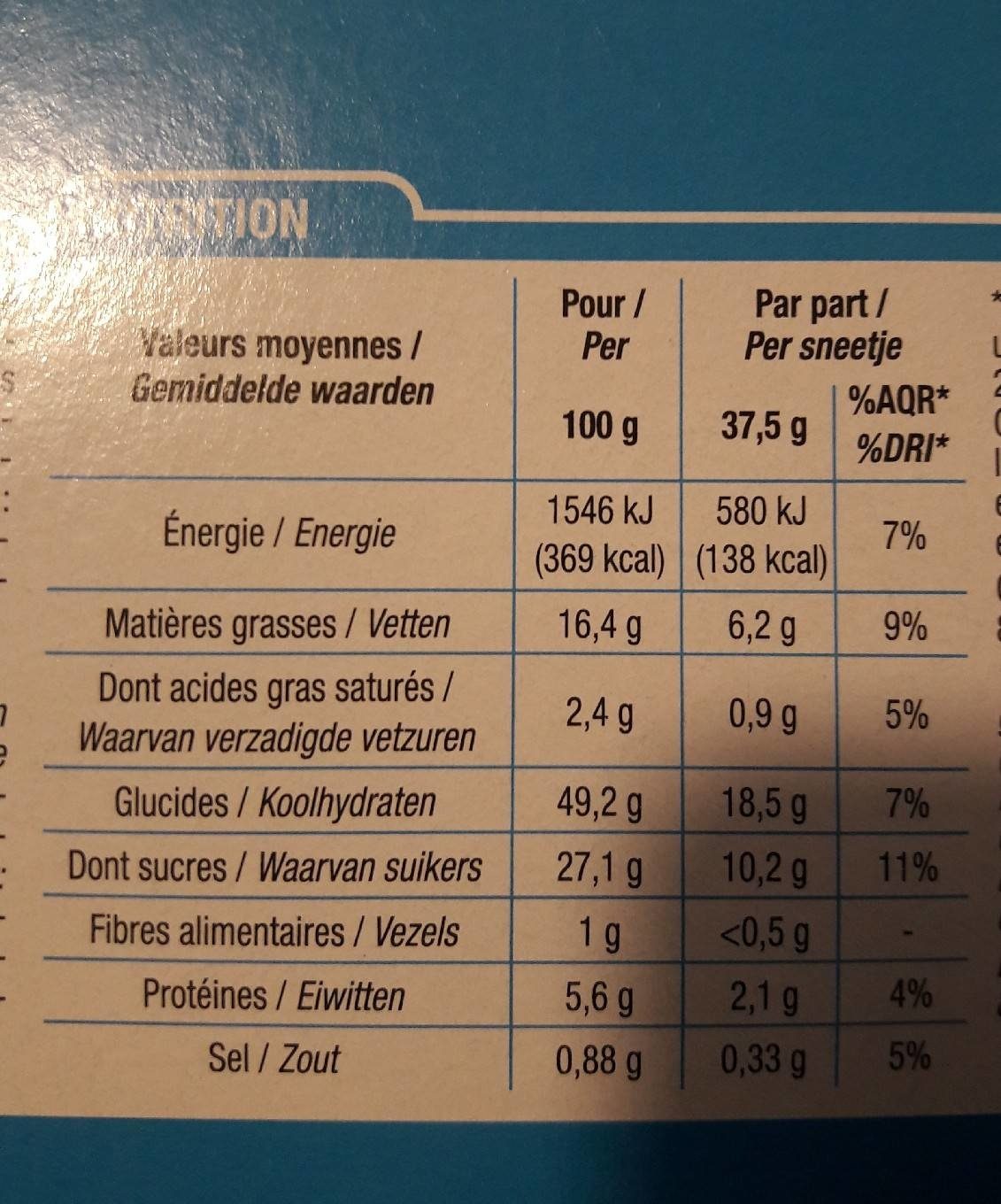Gâteau au lait entier - Cora - 300 g e
This product page is not complete. You can help to complete it by editing it and adding more data from the photos we have, or by taking more photos using the app for Android or iPhone/iPad. Thank you!
×
Barcode: 3257983134438 (EAN / EAN-13)
Quantity: 300 g e
Packaging: Plastic, Bag, Box, Cardboard
Brands: Cora
Categories: Snacks, Sweet snacks, Biscuits and cakes, Cakes
Labels, certifications, awards:
Green Dot, Tidy man
Manufacturing or processing places: France
Traceability code: EMB 17283A - Pons (Charente-Maritime, France)
Stores: Cora
Matching with your preferences
Environment
Packaging
Transportation
Report a problem
Data sources
Product added on by openfoodfacts-contributors
Last edit of product page on by packbot.
Product page also edited by beniben, kiliweb, nicolas97, nouky20, tacite, yuka.UlljaEFhay9oZHdJbXNFbXdUekY5c0IrbTY2Z2REKzlCdkJPSUE9PQ.










